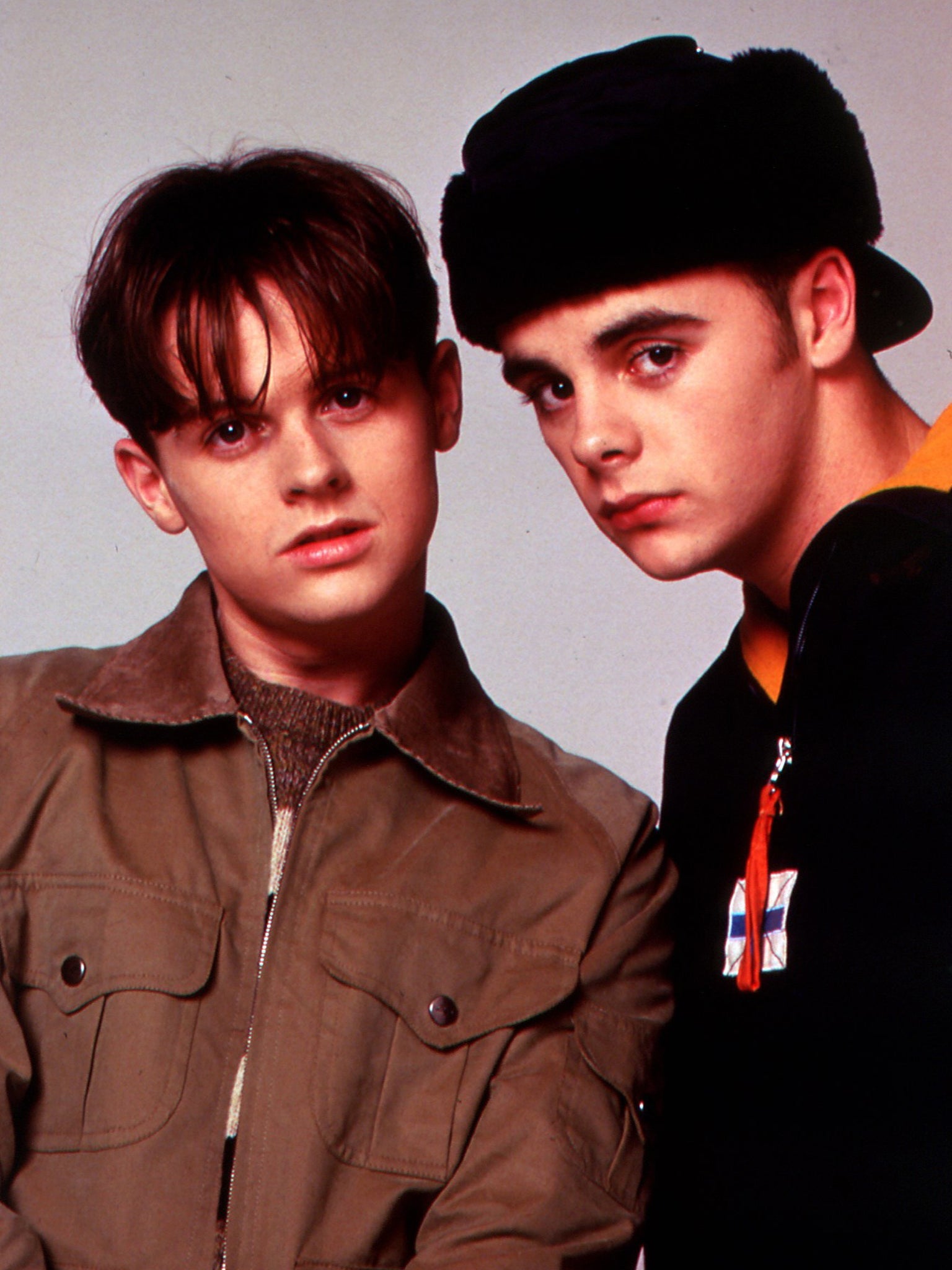Byker Grove 25 years later: Meet the producers behind the nineties' TV hit
As the Geordie kids’ drama Byker Grove celebrates 25 years since it launched, Caroline Corcoran speaks to the producers about what made it so groundbreaking

If you were a teenager in the Nineties, it’s likely that the soundtrack to your 5pm after-school snack went like this: “By-ka By-ka Grove, ah-ha, ah-ha, ah-ha” (repeat to fade).
You may have wished your name was Don-na (Geordie pronunciation crucial), fancied only boys who had Declan Donnelly curtains and – of course – after Ant McPartlin’s character PJ was blinded, been left with a lifelong fear of paintball.
Today, eight years after the Geordie youth club closed its doors, Byker Grove celebrates its 25th anniversary with Byker Grove: All Grown Up, an event by the Royal Television Society at Tyneside Cinema.
Originally borne out of a BBC policy to expand its programming outside London, Byker was seen as a northern alternative to their flagship children’s programme Grange Hill.
“You’d be watching Grange Hill and it seemed so far away – out of reach,” Newcastle-born Ant McPartlin has said, but despite the marked differences, Byker took a lot from its southern stablemate. Not least its role as the voice of youth.
“It was important that Grange Hill was ‘This is how my life is’, not ‘This is how you want my life to be’,” says Julian Scott, executive producer of Byker Grove and a floor manager on Grange Hill. “It was a continuing drama about kids where adults only played a minor role and that was a real trailblazer.”
Children’s TV prior to Grange Hill in 1978 had consisted mainly of – to quote the school’s most famous alumni, Todd Carty – “jolly hockey sticks and Billy Bunter”.
US teen television had wholesome fare like Happy Days and The Wonder Years, but UK television companies zoomed in on council estates, featuring gritty issues like homelessness, abuse and abortion.
In Newcastle, Matthew Robinson, the programme’s original producer, recruited a cast of raw talent, children who had never been near a drama school but who had a “freshness”. The characters were real kids with real problems, and a generation related to them.

Watch Apple TV+ free for 7 day
New subscribers only. £9.99/mo. after free trial. Plan auto-renews until cancelled.
ADVERTISEMENT. If you sign up to this service we will earn commission. This revenue helps to fund journalism across The Independent.

Watch Apple TV+ free for 7 day
New subscribers only. £9.99/mo. after free trial. Plan auto-renews until cancelled.
ADVERTISEMENT. If you sign up to this service we will earn commission. This revenue helps to fund journalism across The Independent.
“We used to have hundreds of letters about how much kids all over the country loved the accent,” says Robinson. “They would tell us they were practising speaking Geordie in the playground.”
There were bigger influences than a generation of teens with an incongruous Newcastle twang though: pregnant girls who contacted the show to say it had helped them to tell their parents, and the “Just Say No” single in 1986 which raised money for drugs awareness and went to No.5 following Grange Hill’s heroin addiction storyline. Many well-known writers cut their teeth on these shows. Oscar-winning director Anthony Minghella was a script editor on Grange Hill; Children’s Laureate Malorie Blackman OBE wrote Byker.
“We always tried to find the life lessons,” says Robinson. “Actions have consequences, honesty is the best policy, the truth will out… Shakespearean sentences really.”
“I did a debate at Bafta a few years ago about how shows like EastEnders treat their younger audience,” says Scott. “They don’t have Byker, or Grange Hill, so this is where our teen audience are going for a sense of direction and how the world works. We were careful with how we did it, we did research, but if it’s not done in a responsible way they can pick up some strange messages.”
Scott views the decision to get rid of Byker in 2006 – followed closely by Grange Hill – as “a catastrophic mistake”. “It was access to information through a medium that young people could understand and characters that they liked,” he laments. “Without that, they lost a voice.”
A lovely, lilting Geordie one at that.
Join our commenting forum
Join thought-provoking conversations, follow other Independent readers and see their replies
Comments
Bookmark popover
Removed from bookmarks